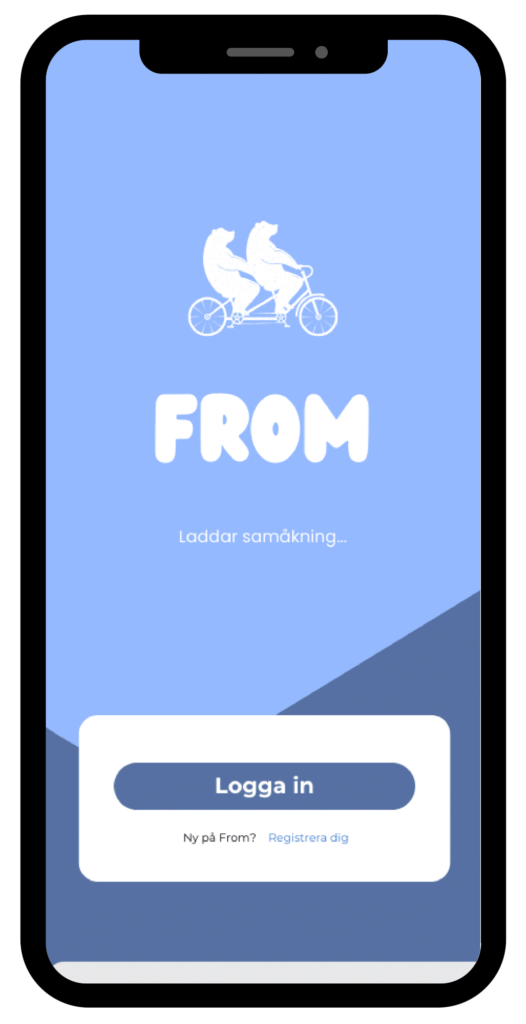FROM
Reducing car journeys through ridesharing for parents
Original challenge: How might we enable more leisure journeys without private cars?
Challenge from: Miljöförvaltningen (Environment and Health Department), Stockholms stad
Redefined challenge: How might we satisfy today’s modern mobility needs, while also reducing Stockholm City’s overall carbon emissions, within a fixed public transportation structure?
Solution: FROM
Concept: The FROM app is tailored for parents of children involved in sports, providing a ride-sharing platform to ease their transportation needs and reduce stress. This platform allows parents to connect with other parents or drivers to share rides, ensuring timely transportation to and from sports venues while minimizing the use of private cars. This fosters seamless coordination among stakeholders involved in children’s sports activities, simplifying scheduling and transportation for improved efficiency. The name FROM is inspired by Per From, a pioneering bicycle dealer in Stockholm born in 1856.
Team: The Board
Cliford Lebina, Jeff Perryman, Khalid Abdallah, Tilda Rådström, Ziyi Liang

Report abstract
As societies evolve, so do their challenges and opportunities. This paper provides a concept solution to one of the pressing challenges of our time: carbon emissions from vehicles. Specifically, it focuses on reducing leisure automobile trips to mitigate carbon emissions in Stockholm, in alignment with the city’s 2030 sustainability goals. Through the lens of design thinking, we, a group of students fromChina, Sweden, South Africa, the US, and Tanzania collaborate with Miljöförvaltningen to explore innovative solutions. Our project identifies key challenges in governance, social norms, conflicting interests in city planning as well as collaboration challenges between diverse stakeholders. By reframing these challenges into a Point of View, problem statement, this project aims to provide one possible solution to satisfy modern mobility needs while tackling carbon emissions within the constraints of existing public transportation infrastructure. The methodology encompasses phases of Empathize, Define, Ideate,Prototype, and Test, guided by the SCRUM framework. Insights gained from this study contribute to a deeper understanding of the interconnectedness between transportation, societal norms, and environmental sustainability, offering avenues for future research and innovations.
Project presentation video
A project by: Cliford Lebina, Jeff Perryman, Khalid Abdallah, Tilda Rådström, Ziyi Liang